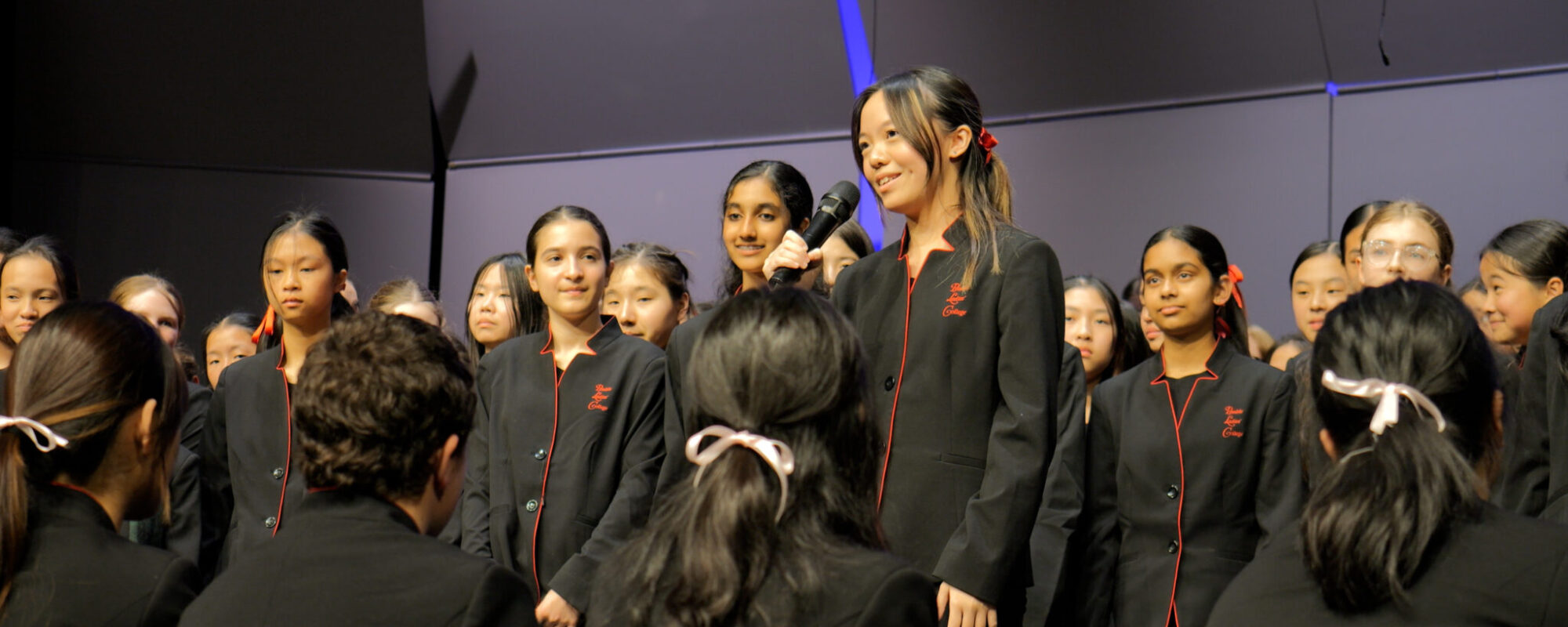From the Principal
And that’s a wrap for Semester 1. Well done to all, and a special thank you to our musicians who brought the house down with their farewell to Year 12 at this week’s Secondary School Ensemble Concert.
It’s been a huge two terms and now it’s time for a well-earned break. Our thoughts are with all the girls representing Pymble in the holidays, including the students and staff heading to Tanzania for the service tour, our Boarders travelling home, and families who are heading overseas. Have a wonderful time and, please, come back to us safely.
Going into the holidays, I’m conscious this is a time when screen time can blow out. Our staff recently attended a presentation on skills, strategies and context in relation to our young people and the online world. The presenter, Yasmin London, is a global online safety advocate and advisor, and CEO of The Digital Fluency Group, an online safety consultancy focused on ensuring technology empowers rather than limits our young people’s lives.
Here is what she wants every parent to know and talk about with their daughters.
“A girl’s greatest influence will always be her parents”
The internet and online environment are places not platforms in the minds of our young people. Regardless of impending age restrictions, it’s important to meet our children where they are at by understanding how they view the online world and talking with them about how to navigate it wisely.
Key risks to talk about
Online shopping addiction – girls are exposed to promotions and advertisements for skincare every time they open their devices, to the point where 93 per cent of 10- to 17-year-olds are making a purchase every week. On average, they are spending $1,300 to $1,500 each year on products they are seeing on TikTok, Instagram or YouTube, which can disrupt their developing sense of self and self-esteem and lead to being scammed by too-good-to-be-true ‘deals’ on desired products.
Cyber-ostracism – around 60 per cent of teens experience some form of online exclusion each year, which can be damaging as one of the biggest issues at that age is wanting to be part of and belong to a group.
Filter dysmorphia – apps that make users look unrealistically beautiful are leading to young girls and women seeking cosmetic surgery to match their heavily filtered image.
Toxic beauty advice – toxic beauty ‘hacks’ and dangerous ‘advice’ such as eye-to-eyebrow threading procedures to achieve the cat’s-eye look or filing uneven teeth into straightness are becoming normalised thanks to unqualified online influencers.
Exposure to misinformation – in terms of personal safety, this puts teens at risk of online scams and exploitation of their personal information, grooming by predators, and online radicalisation. In terms of wellbeing, exposure to fake or harmful misinformation can negatively impact a teen’s self-esteem, create fear and anxiety, and lead to physical consequences or harm.
Skills and strategies to combat online risks
Yasmin’s top tips for young people who have access to chat groups, social media and online advertisements through gaming or YouTube include:
- Slow down – pause before you react to anything.
- Use fact-checking tools habitually – try PoliFact, Snopes and ABC Fact Check.
- Use the 3 Ps to understand the difference between banter and bullying – is it persistent? Is it personal? Is the message couched in a pardoning of the behaviour, such as “no offense, but…”? If a post or comment ticks all these boxes, it’s most likely bullying, which can be reported.
- Anticipate what could be seen as cyberbullying before you act – in relation to comments, posts, polls, and who is included and excluded in chat groups.
- Understand that influencers have personal agendas – 60% of teens go to their favourite influencer for advice, rather than a credible news source. Encourage your daughter to fact check and ask herself the question, ‘What’s in that advice for the influencer, and what’s in it for me?’.
- Disrupt algorithms that are not serving her well – sharing, liking or commenting on a post will deliver more similar content into her feed. Encourage her to block, restrict or hide non-credible, risky or harmful content to disrupt the algorithm feeding it to her.
- Be a first mover – someone has to go first to influence digital group norms of respect, inclusion, healthy dynamics and priorities. Give your daughter the challenge of becoming a new type of influencer – one who prioritises values, belonging and inclusive online behaviour.
Lots of great, practical ideas and healthy conversation-starters here to help build on the important work we are doing together as ‘first movers’ towards healthier online habits through our Wise Phone Initiative.
Have a wonderful break and we look forward to seeing all students back on campus on Tuesday July 22 for the first day of Term 3.


